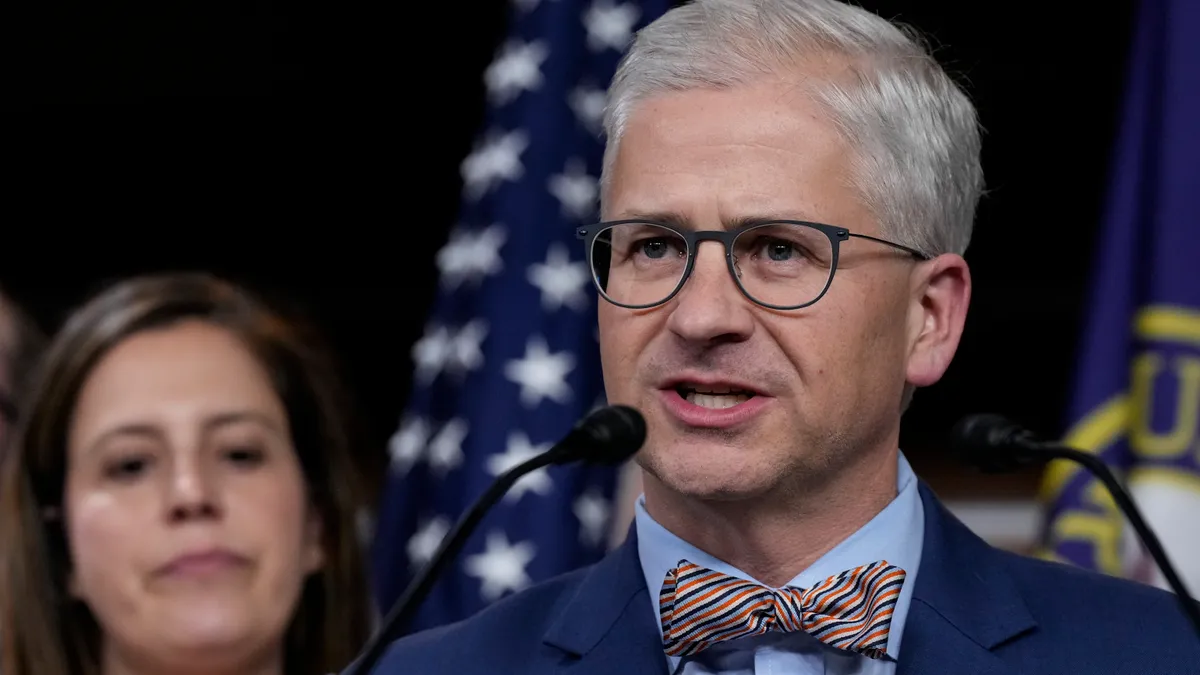The past year-and-a-half has brought prolonged hand-wringing from executives about whether working from home is sustainable over the long term.
Perhaps no voice on the issue has been louder than that of Jamie Dimon, CEO of JPMorgan Chase, who has railed against remote work as a new standard.
"A lot of people say, 'I'm not going to go back to work.' Look at their Instagrams," he said in April. "They didn't get sick from coming into the office. They got sick partying."
He followed that up weeks later, asserting that working exclusively from home "doesn't work for those who want to hustle. It doesn't work for spontaneous idea generation. It doesn't work for culture."
“It’s got to work for the clients," Dimon added. "We want people back at work, and my view is, some time in September, October, it will look just like it did before, and everyone's going to be happy with it."
He's not the only big-bank CEO to take a hard line. As the COVID-19 vaccine rollout dragged on, Goldman Sachs CEO David Solomon called the prospect of extended remote work “an aberration that we are going to correct as quickly as possible."
“For a business like ours, which is an innovative, collaborative apprenticeship culture, this is not ideal ... and it’s not a new normal," he said.
No concerns
The same sentiments have not held true among CFOs.
CFO Dive has spoken with finance chiefs working at large and midsize companies throughout the U.S., Canada and Oceania, who reported no problems with remote work, maintaining the trend has not materially affected their bottom lines.
With the advent of technology that allows for bridging the gap between remote and in-person work, most agile companies — particularly those that invested in digital before the pandemic made it an imperative — the finance team’s ability to accomplish tasks has remained largely uncompromised.
Some CFOs have even said that the migration to digital-first has come as a welcome respite from unnecessary meetings or in-person commitments.
“I'm a convert to remote work,” said Justin Coulombe, CFO of Momentive, formerly known as SurveyMonkey. “Pre-pandemic, I believed teams worked best in the office, but I've come to realize that point of view was more shaped by my preferences and leadership style [rather than] our team's actual ability to work effectively.”
Flexible working arrangements bring great value to Coulombe’s finance team, which spans beyond the company’s traditional geographic hubs.
“My current working theory: generally, the teams that may find in-office work more effective are those with heavy business partnering roles, like procurement and [financial planning and analysis],” he said. “We're a service function, so many times we'll align to where our partners are and how they work.”
The world’s largest brewery, AB InBev, which owns Corona, Modelo, Stella Artois and Budweiser, operates in a flexible hybrid environment. Its CFO, Fernando Tennenbaum, said he sees pros and cons to all approaches.
“Probably, in the future, there will be some combination of remote and in-person work,” he said. “Definitely, sometimes meeting in person is valuable, but it’s also possible to work remotely.”
At the start of the pandemic, when AB InBev was forced to close the books remotely for the first time, Tennenbaum was worried about everything coming together. But because his team paid a great deal of attention to the quarterly close process, on account of it being the first time they’d done it, everything went smoothly, which he took as “a great sign.”
Even so, Tennenbaum wouldn’t pinpoint one role over another that would be best suited to return to in-person work permanently. “It’s more about maintaining people’s interactions than about any specific task,” he said.
“If anything, the pandemic proved remote work is essentially just as good as in-person; all jobs got done on time without sacrificing quality,” said Kirsty Godfrey-Billy, CFO of New Zealand-based cloud accounting company Xero. “Cloud accounting [allows for] pretty much all finance-related tasks to be done anywhere, anytime on a single, up-to-date general ledger.”
But to keep evolving and thriving as a profession, accountants must truly embrace technology and the changes that come with it, Godfrey-Billy said.
The longtime-distributed workforce at Rokt, the e-commerce tech company where Laura Mineo is CFO, positioned it well for the hybrid mode it uses.
“In my view, the importance of in-person work isn’t necessarily related to completing certain tasks but to everything that surrounds those tasks and allows us to complete them more effectively and efficiently as we scale,” Mineo said. “Things like knowledge sharing across functions, onboarding new employees, supporting other departments throughout our organization and maintaining the apprenticeship culture we prioritize are all easier and more effective in person.”
In-person potential
Marten Abrahamsen, CFO of financial services platform Fundbox, said his company's finance team functions "very well remotely.”
However, Abrahamsen, who joined Fundbox weeks before the pandemic, has found the company’s strategic finance and corporate development teams stand to benefit most from in-person collaboration and discussion.
“These teams, in particular, engage in frequent whiteboarding sessions and healthy, back-and-forth debates that are best done in person,” he said.
Vanessa Kanu joined Canadian telecom giant TELUS International as CFO a year ago. In that time, completely virtually, TELUS pulled off the largest technology initial public offering in the history of the Toronto Stock Exchange, participated in investor roadshows and hosted its first two earnings calls.
She credits the company’s carrier-grade infrastructure, backed by cloud technologies, with allowing her and her team to simulate an in-office experience from home.
“That said, I do believe in-person meetings and events are valuable and offer unique moments for team-building and establishing more personal connections,” Kanu said. “Those interactions are especially helpful for new team member onboarding, training and reinforcing a company’s culture."


















